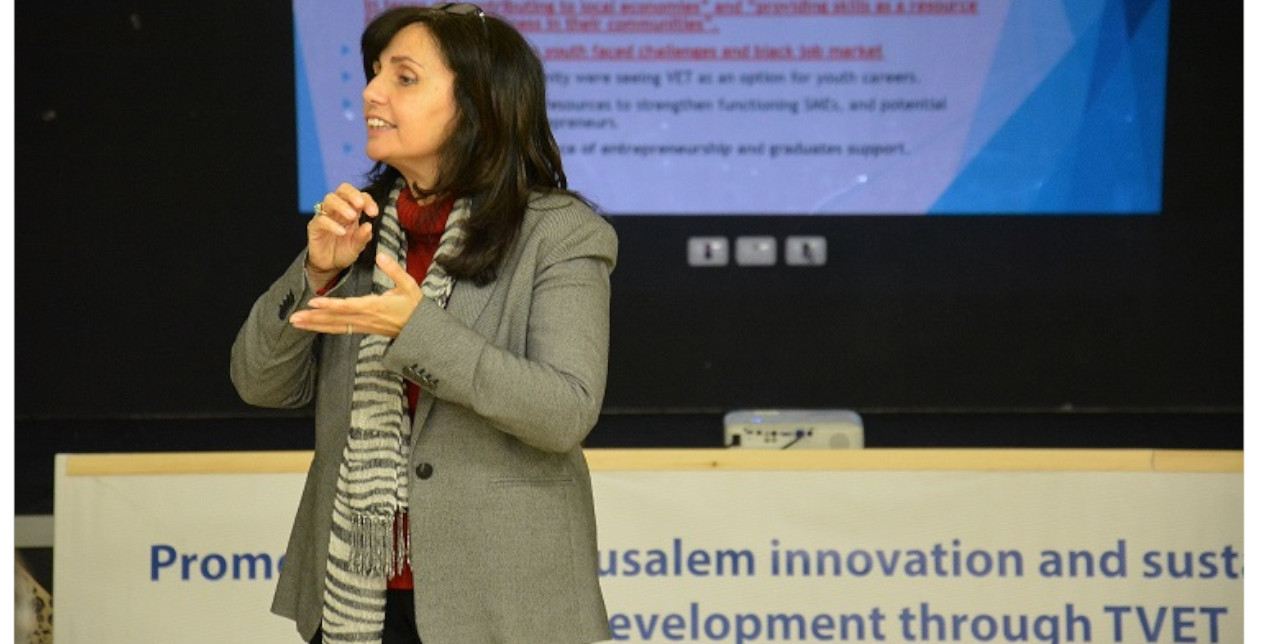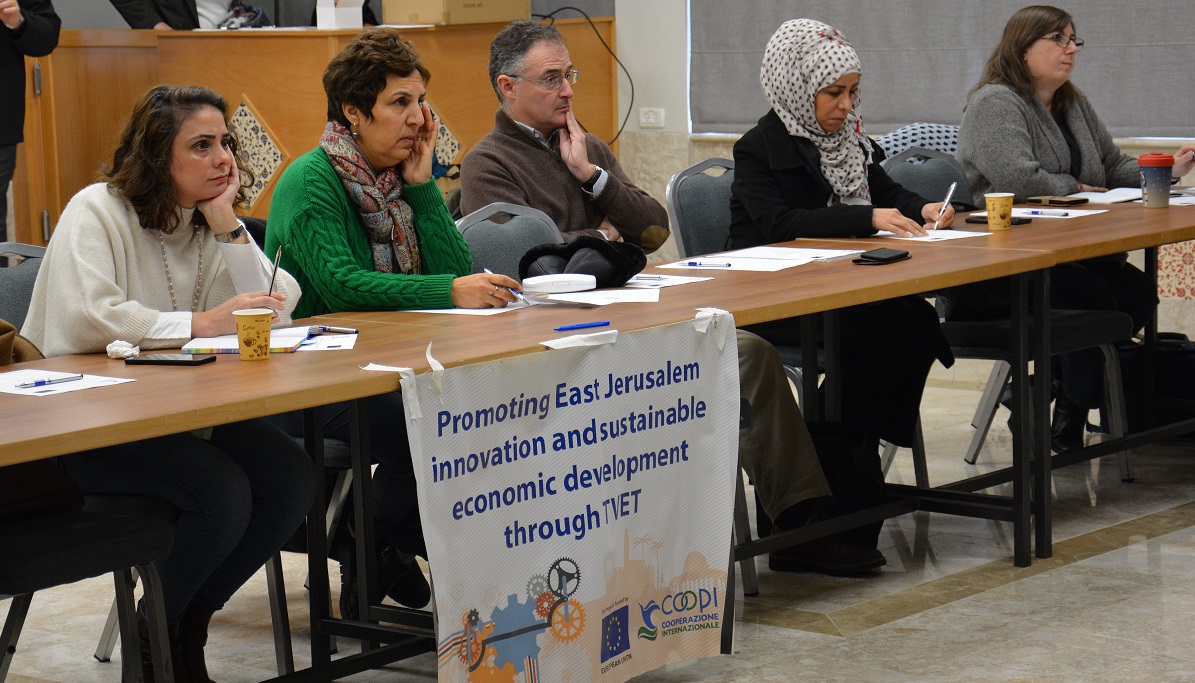15-02-2019 | di COOPI
East Jerusalem: two new studies carried out on the labour market
Two labour market and skills analysis studies carried out in 2018 by COOPI were released and discussed publicly on the 9th of January at the Lutheran World Federation training school in Beit Hanina, Jerusalem. The studies are part of the project “Promoting East Jerusalem innovation and sustainable economic development through TVET ” funded by the European Union.
The primary purpose of these studies is to understand the demand of employers, including their requirements regarding technical, personal and life skills of potential employees. The studies therefore dig into how the microeconomics of East Jerusalem work, to understand what kind of training future employees need, and to find opportunities for local entrepreneurs either as start-ups or as freelancers.
The event started with presentations by the consultants who prepared the studies, followed by discussions of the results with project partners and other stakeholders. The discussions focused mainly on how both educational institutions and companies can deal with the social and political complexity of Jerusalem, as well as the reasons and solutions for the apparent mismatch between offered trainings and the market demand.
One of the meeting session related to the “Promoting East Jerusalem innovation and sustainable economic development through TVET” project.
The first study, entitled “Rapid Needs Assessment for the East Jerusalem Local Market with focus on the Tourism and Technology Sectors” and carried out by Optimum for Consultancy and training, primarily relied on how tourism is deeply influenced by the situation and number of people visiting East Jerusalem. In addition, the research showed that ICT businesses are in need of hiring people regardless of political status, with a predominance of small businesses requiring high flexibility and multitasking from potential employees. A solution to tackle these requests could be found by organising modular training, which could face this shifting situation.
The second study was carried out by Solutions for Development Consulting Company, instead. According to the “Labour Market Study and Skills Analysis in East Jerusalem” study findings, a high percentage of employers anticipate that the demand on their economic activity will increase in the next three years and almost 39% expect new professions to be added to their businesses. While these findings propose positive prospects for TVET employment, the mismatch between the demand and supply of labour must be addressed wherein some businesses are demanding less labour, while others are finding difficulties in finding skilled workers. The skill gap in the market place is evident for both soft and technical skills. The alteration of TVET is essential since the curriculum and equipment used in the courses were perceived as outdated.
Participants included representatives of the EU, the Al Quds University, the Belgian Cooperation, the German Cooperation and the four training centers supported by this project.
“Brokering the communication between education providers and employers seems to be one of the main roles stakeholders can have” was a shared observation of various participants.
The “Promoting East Jerusalem innovation and sustainable economic development through TVET” project is aiming to reinforce the livelihood of East Jerusalemites through the promotion of TVET as a smart career option, support TVET providers in their activity, and to improve employability through career guidance and supporting entrepreneurship. Among its main results, the project has so far allowed scores of school students to get acquainted with vocational training options, with a positive impact in enrolments at training centres and schools; curricula and equipment have been updated and improved at these TVET providers; and graduates have been supported in finding jobs or setting up their own businesses.




 Palestine
Palestine
